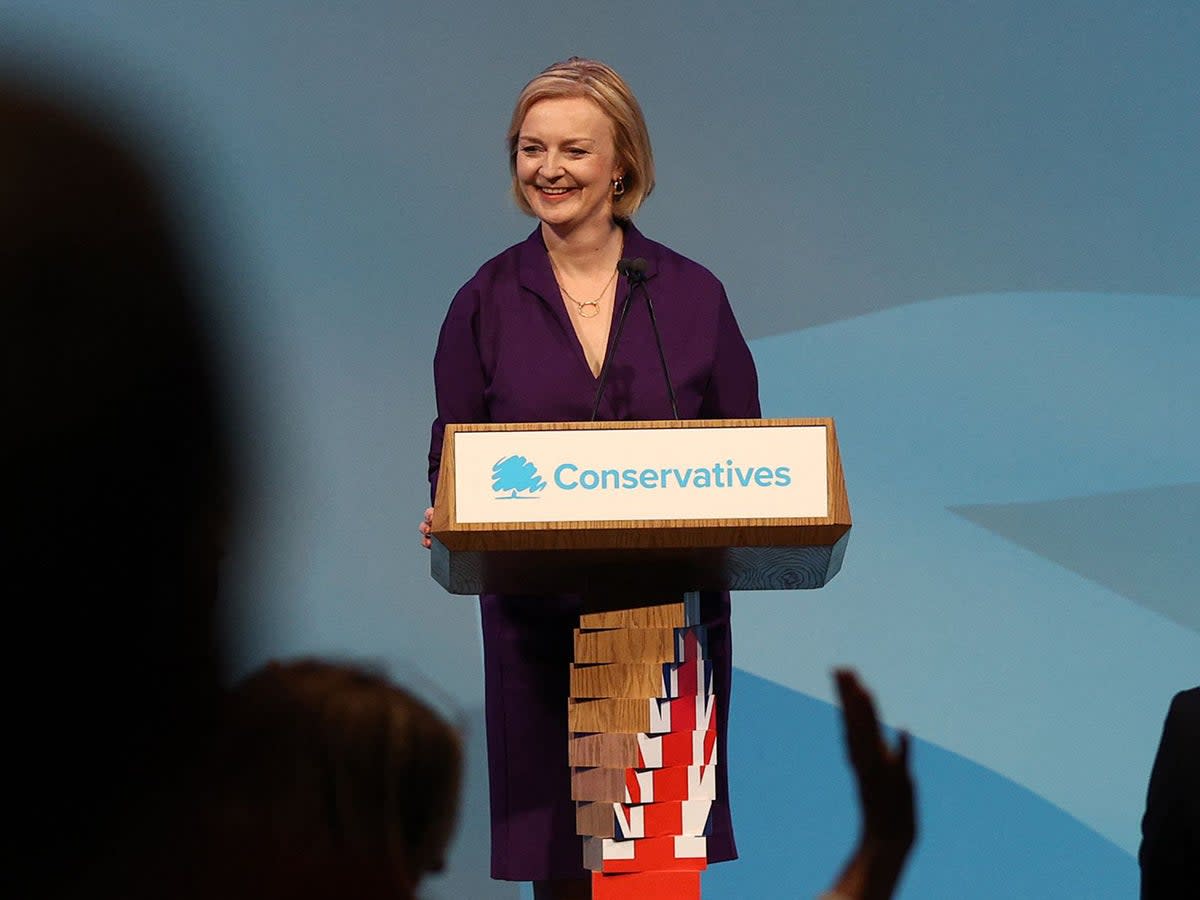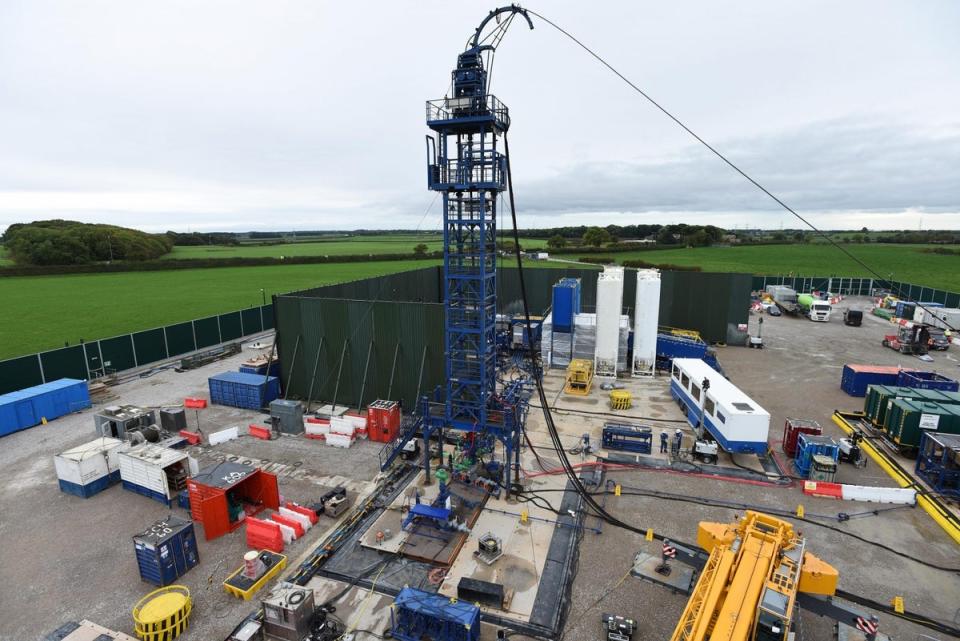What does Liz Truss as prime minister mean for climate action?

Liz Truss has promised to exploit fossil fuels in the North Sea, explore fracking, and scrap green levies on energy bills, all the while “doubling down” on the Conservative manifesto commitment to reach net zero by 2050.
Now Ms Truss has been confirmed as Britain’s next prime minister, these once-theoretical positions could become government policy if she stays true to her assertion that “what you see is what you get”.
So what will a Truss premiership mean for the twin energy and climate crises facing Britain?
Exploiting North Sea oil and gas
Ms Truss backs the government position that extracting fossil fuel resources in the North Sea is crucial to building energy security.
This comes despite repeated warnings from energy experts and climate campaigners that it will not ease Britain’s energy crisis, which will see average annual household bills rise to more than £3,500 from October. That’s because it can take years to get oil and gas fields operational and, when the fuels are finally extracted, they’re sold at international prices.
At the same time, climate campaigners note that extracting and burning more fossil fuels will only further fuel the climate crisis.
The International Energy Agency has calculated that no new oil, gas or coal developments should now take place if the world wants to be net zero by 2050 and avoid the most catastrophic consequences of climate breakdown.
Backing fracking
Ms Truss has said she backs fracking in parts of the United Kingdom provided there is community support.The Sun has reported that her government could lift the ban on extracting oil and gas via the process within days of Ms Truss becoming the new leader.
But again, climate campaigners such as Friends of the Earth, say fracking will do little to bring down bills fast and will “only lock us into expensive and polluting fossil fuels for decades to come”.

Business Secretary Kwasi Kwarteng, who is expected to be chancellor under Ms Truss, has himself said fracking won’t materially affect the price of gas.
“UK producers won’t sell shale gas to UK consumers below the market price,” he said, earlier this year. “They’re not charities.”
Green Party co-leader, Carla Denyer, said Ms Truss being selected to become prime minister is a “disaster” for the climate.
“Burning more fossil fuels will simply speed up climate breakdown, giving us more extreme heat, floods, storms and food shortages in the UK and across the world,” she said.
Scrapping green levies
Early on in the leadership contest, Ms Truss said she would halt green levies on energy bills to enable businesses to thrive while looking at the best way of delivering net zero.
Those levies support renewable power in the UK and home insulation, both of which experts say are needed to bring down bills and tackle the climate crisis.
What’s more, the Energy and Climate Intelligence Unit, (ECIU), which promotes informed debate on the climate crisis and energy policy, has said the cost of gas is responsible for at least 95 per cent of the energy bill hike or the equivalent of some £2,300 per home. This means cutting green levies will do little to ease the burden of eye-watering bills on businesses while reducing support for the transition to net zero.
Renewables
Ms Truss has said she supports renewable energy sources, including wind, solar, and hydrogen power.
But her commitment has been cast in doubt by her promises at leadership hustings where she vowed to stop “filling fields with paraphernalia like solar farms”.
As environment secretary between 2014 and 2016, Ms Truss cut subsidies for solar farms, describing them as “a blight on the landscape”.

She has since clarified that she supports solar on roofs, saying she would make it easier to put solar panels on the roofs of warehouses, factories, and homes. But she said what she did not support was putting solar panels on productive agricultural land because the country also faces a food security issue.
However, Joe Tetlow, a senior political adviser at the think tank Green Alliance, has said solar panels offer a reliable source of income for farmers and that climate breakdown is the biggest threat to crop yields, not solar panels.
Insulation
Ms Truss has pledged to help people insulate their homes despite cutting energy levies.
However, appearing on Laura Kuenssberg’s new BBC politics show on Sunday, Ms Truss failed to mention a plan to insulate people’s homes as a long-term solution to tackling the energy or climate crises.
Green groups and anti-poverty campaigners have called on Ms Truss to kick off a nationwide insulation programme to fix leaking homes as fast as possible. Insulating people’s homes will cut energy demand and consequently bills and emissions.
Is her heart in tackling the climate crisis?
Ms Truss has signed the Conservative Environment Pledge to continue the party’s environmental leadership, deliver net zero by 2050 and halt the decline in nature by 2030.
However, Shaun Spiers, executive director of green think tank Green Alliance, previously told The Independent that Ms Truss has “never shown great enthusiasm for environmental policies”.
In previous government roles, she was relatively unwilling to engage with green groups, he said. While the foreign office was once a “powerhouse of climate diplomacy” under Ms Truss, there had been “absolutely nothing” on this front, he added.
Both Zac Goldsmith, a long-time environmentalist and minister for the International Environment in Boris Johnson’s government, and Chris Skidmore, chair of the Net Zero Support Group, supported Ms Truss to be prime minister giving environmentalists some hope yet.
The Independent has contacted Ms Truss’ team for comment.


